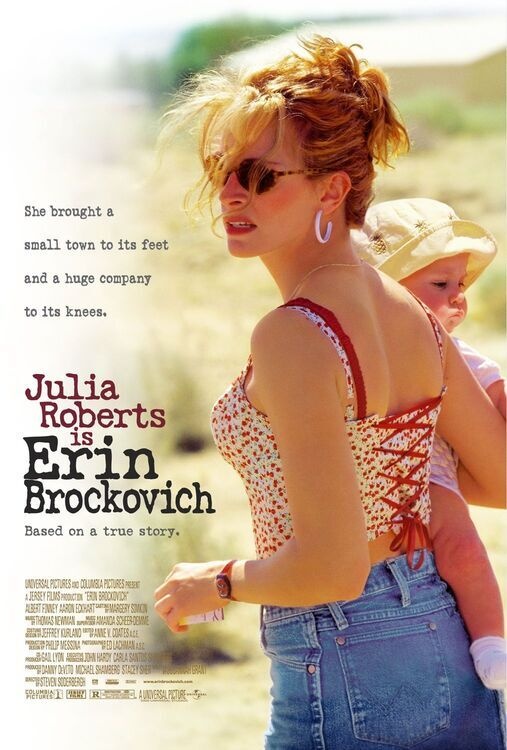Office of Sustainability Screens ‘Erin Brockovich’ as Part of 13 Days of Green
As part of Colgate’s annual 13 days of Green, the Office of Sustainability held a screening of the 2000 film “Erin Brockovich” last Thursday, April 14, in Burke Hall. Starring Julia Roberts as Erin Brockovich, the film is “based on the true story of an activist who fought against Pacific Gas & Electric Company for their culpability in the Hinkley groundwater contamination incident of 1952-1966,” according to the event’s description.
The plot begins as Erin Brockovich, a single mother newly hired at a law firm office, researches the real estate files of Hinkley, California. After meeting resident Donna Jenson, Brockovich learns about the series of medical issues Jenson and her husband suffer from. Mysteriously, their doctors are provided by the Pacific Gas and Electric Company (PG&E) free of charge. Later, it was revealed that the company’s oil drilling polluted the local water with chromium — a chemical directly linked to lung cancer and liver damage. However, the Pacific Gas and Electric Company told the community they were using a safer form of chromium, despite knowing otherwise.
The doctors — under direct instruction from the company — convinced the residents that their symptoms were not linked to the hexavalent chromium found in the water. With this discovery, Brockovich became determined to take down PG&E. Through her research, Brockovich linked the pollution to the local PG&E branch of Hinkley rather than its national headquarters.
Over a series of Hinkley town events, Brockovich repeatedly encountered an ex-employee of PG&E, who later admitted to her that he was tasked with destroying documents. He did not successfully carry out this assignment, and instead held onto several of these documents — which he later handed over to Brockovich for her legal pursuits.
With these documents, Brockovich was able to win the court case, putting an end to the cover-up and granting millions of dollars to the Jenson family.
Not only was the film a box office hit after its release in 2000, as indicated by its multiple Academy Award nominations, it was also a success among Colgate students.
“The film was really amazing, and it does a good job showing the social justice that comes with environmental activism,” sophomore Gabriella Amato said. “Plus, Julia Roberts does not miss. I would highly recommend it.”
Sustainability intern junior Becca Kornblaeu, who helped plan the event, noted how the film demonstrated the intersectionality of environmental ethics and humanitarian issues.
“I wanted students to see how low-income communities are disproportionately exposed to environmental hazards. I think the community film is also similar to many rural communities in upstate New York, and we have seen issues of environmental justice play out in communities like this before,” Kornblaeu said. “The movie does a good job demonstrating how communities can advocate for themselves, and how important it is to listen to their personal stories rather than relying [on] information from big-industrial polluters, who have [an] incentive to not fully disclose the extent of the damage they cause.”







